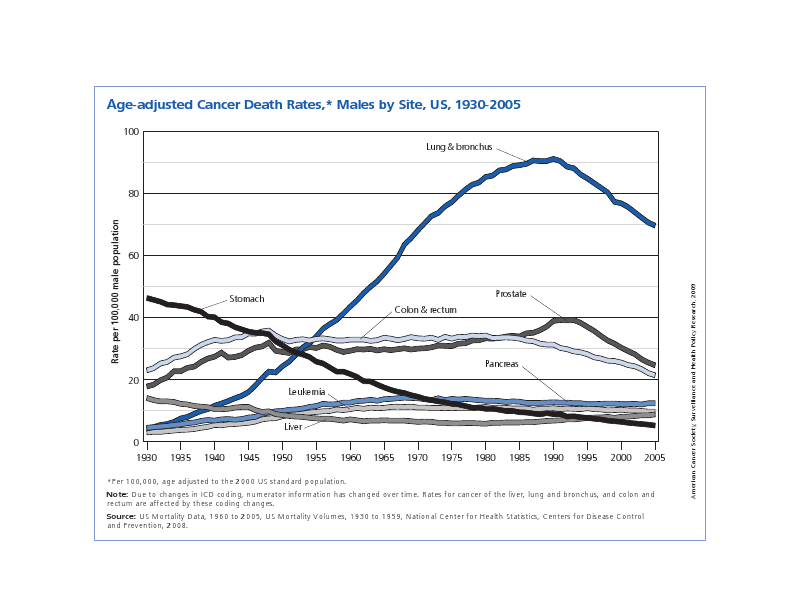Ok, so we all want to be good to the environment. The first step to doing this, as is often the case – is to understand the main characters in the story – and possibly the biggest character in the story in Energy.
However, energy is such a very vague concept, so where do you go to learn more? Do you have to do a physics course?
I don’t think so, and to test my theory, I have tried to explain energy as briefly as I can in this post.
Energy 101
Energy is what makes the world go round. Literally. Every neuron that sparks in your brain, every electron that fires down a wire, every molecule burning in a fire, carries with it a sort of momentum that it passes on like a baton in a complex relay race. The batons are flooding in all directions all around us and across the universe – they are energy and we have learned how to harness them.
The actual word “Energy” is a much abused term nowadays – because energy is used to represent such a disparate range of phenomena from heat to light to speed to weight, and because it seems to be able to change forms so readily, it is cannon fodder for pseudo-scientific and spiritual interpretation. However, you will be pleased to hear that it actually has a very clear (and consistent) nature.
I like to think of energy being a bit like money – it is a sort of currency that can be traded. It takes on various forms (dollars/pounds/swiss francs) and can be eventually cashed in to achieve something. However, just like money, once spent, it does not vanish. It simply moves on a new chapter in its life and may be reused indefinitely.

§Energy currencies:{1}Matter is energy(see footnotes) {2} Radiation {3} Chemical energy {4} Thermal (heat) energy {5} Compression energy {6} Kinetic (movement) energy {7} Electrical energy
To illustrate the point, let’s follow a ‘unit of energy’ through a visit to planet Earth to see what I mean. The [number] shows every time it changes currency (see the key on the right).
The energy starts off tied up in hydrogen atoms in the sun [1]. Suddenly, due to the immense pressure and heat, the nuclei of several atoms react to form a brand new helium atom, and a burst of radiation[2] is released. The radiation smashes into other nearby atoms heating them up so hot [4] that they glow, sending light [2] off into space. Several minutes pass in silence before the light bursts through the atmosphere and plunges down to the rainforest hitting a leaf. In the leaf the burst of power smashes a molecule of carbon dioxide and helps free the carbon to make food for the plant [3]. The plant may be eaten (giving food ‘Calories’), or may fall to the ground and settle and age for millions of years turning perhaps to coal. That coal may be dug up and burned to give heat [4] in a power station, boiling water to supply compressed steam [5] that may drive a turbine [6] which may be used to generate electricity [7] which we may then use in our homes to heat/light/move/cook or perhaps to recharge our mobile phone [3]. That energy will then be used to transmit microwaves when you make a call [2] which will mostly dissipate into the environment heating it (very) slightly [4]. Eventually the warmed earth radiates [2] this excess of heat off into the void where perhaps it will have another life…
This short story is testament to an enormous quantity of learning by our species, but there are some clear exclusions to be read into the story:
- Energy fields (auras) or the energy lines in the body that conduct the “chi” (or life force) of Asian medical tradition
- Energy lines on the Earth (aka Ley lines)
- Negative or positive energy (as in positive or negative “vibes”)
These energy currencies relate to theories and beliefs that science has been unable to verify and thus they have no known “exchange rate”. Asking how many light bulbs can you power with your Chi is thus a nonsensical question, whereas it would not be for any scientifically supported form of energy. And since energy flows account for all actions in the universe, not being exchangeable would be rather limiting.
Where exactly is Energy kept?
This may sound like s strange question, we know Energy is kept in batteries, petrol tanks and chocolate chip cookies. But the question is, where exactly is it stored in those things?
Energy is stored in several ways:
- as movement – any mass moving has energy by virtue of the movement, which is called Kinetic Energy
- as matter – Einstein figured out that matter is just a form of energy, and the exchange rate is amazing – 1g = 90,000,000,000,000,000 joules (from E=mc^2)
- as tension in force fields
That last one sounds a bit cryptic, but actually most of the energy we use is in this form – petrol, food, batteries and even a raised hammer all store energy in what are essentially compressed (or stretched springs).
What is a force field? Why on earth did I have to bring that up?
All of space (even the interstellar vacuum) is permeated by force fields. The one we all know best is gravity – we know that if we lift a weight, we have to exert effort and that effort is then stored in that weight and can be recovered later by dropping it on your foot.
Gravity is only one of several force fields known to science. Magnetic fields are very similar – it takes energy to pull a magnet off the fridge , and so it is actually an energy store when kept away from the fridge.
The next force field is that created by electric charge (the electric field). For many years this was though to be a field all on its own, but a chap called Maxwell realised that electric fields and magnetic fields are in some senses two sides of the same coin, so physicists now talk of ‘electromagnetic’ fields. It turns out that electric energy (such as that stored in a capacitor) consists of tensions in this field, much like a raised weight is a tension in a gravity field. Perhaps surprisingly, light (as well as radio waves, microwaves and x-rays) are also energy stored in fluctuations of an energy field.
Much chemical energy is also stored in electric fields – for example, most atoms consist of positively charged nuclei and negatively charged electrons, and the further apart they are kept, the more energy they hold, just liked raised weights. As an electron is allowed to get closer to the nucleus, energy is released (generally as radiation, such as light – thus hot things glow).
The least well known force field is the strong ‘nuclear’ force. This is the forces that holds the subatomic particles (protons) together in the nucleus of atoms. Since the protons are all positively charged, they should want to repel each other, but something is keeping them at bay, and so physicists have inferred this force field must exist. It turns out their theory holds water, because if you can drag these protons a little bit apart, they will suddenly fly off with gusto. The strong nuclear force turns out to be bloody strong, but only works over a tiny distance. It rarely affects us as we rarely store energy with this energy field.
Now we understand force fields we can look at how molecules (petrol, oxygen, chocolate) store energy. All molecules are made of atoms connected to one other via various ‘bonds’ and these bonds are like springs. Different types of molecules have different amount of tension in these bonds – it turns out coal molecules, created millions of years ago with energy from the sun, are crammed full of tense bonds that are dying to re-arrnage to more relaxed configurations, which is exactly what happens when we apply oxygen and the little heat to start the reaction.
The complexity of the tensions in molecules are perhaps the most amazing in nature, as it is their re-arrangements that fuel life as we know it.
What exactly is Heat then?
You may have noticed that I did not include heat as a form of energy store above. But surely hot things are an energy store?
Yes, they are, but heat is actually just a sort of illusion. We use heat as a catch all term to describe the kinetic energy of the molecules and atoms. If you have a bottle of air, the temperature of the air is a direct consequence of the average speed of the molecules of gas jetting around bashing into one another.
As you heat the air, you are actually just increasing the speed of particles. If you compress the air, you may not increase their speed, but you will have more particles in the same volume, which also ‘feels’ hotter.
Solids are a little different – the atoms and molecules in solids do not have the freedom to fly around, so instead, they vibrate. It is like each molecule is constrained by elastic bands pulling in all directions. If the molecule is still, it is cold, but if it is bouncing around like a pinball, then it has kinetic energy, and feels hotter.
You can see from this viewpoint, that to talk of the temperature of an atom, or of a vacuum, is meaningless, because temperature is a macroscopic property of matter. On the other hand, you could technically argue that a flying bullet is red hot because it has so much kinetic energy…
Is Energy Reusable?
We as a species, have learned how to tap into flows of energy to get them to do our bidding. So big question: Will we use it all up?
Scientists have found that energy is pretty much indestructable – it is never “used-up”, it merely flows from one form into another. The problem is thus not that we will run out, but that we might foolishly convert it all into some unusable form.
Electricity is an example of really useful energy – we have machines that convert electricity into almost anything, whereas heat is only useful if you are cold, and light is only useful if you are in the dark.
Engineers also talk about the quality (or grade) of energy. An engineer would always prefer 1 litre of water 70 degrees warmer than room temperature, than 70 litres of water 1 degree warmer, even though these contain roughly the same embodied energy. You can use the hot water to boil an egg, or make tea, or you could mix it with 69 litres of room temperature water to heat it all by 1 degree. It is more flexible.
Unfortunately, most of the machines we use, turn good energy (electricity, petrol, light) into bad energy (usually “low grade heat”).
Why is low grade heat so bad? It turns out we have no decent machine to convert low grade heat into other forms of energy. In fact we cannot technically convert any forms of heat into energy unless we have something cold to hand which we are also willing to warm up; our machines can thus only extract energy by using hot an cold things together. A steam engine relies just as much on the environment that cools and condenses water vapour as it does on the coal its belly. Power stations rely on their cooling towers as much as their furnaces. It turns out that all our heat machines are stuck in this trap.
So, in summary, heat itself is not useful – it is temperature differences that we know how to harness, and the bigger the better.
This picture of energy lets us think differently about how we interact with energy. We have learned a few key facts:
- Energy is not destroyed, and cannot be totally used up – this should give us hope
- Energy is harnessed to do our dirty work, but tends to end up stuck in some ‘hard to use’ form
So all we need to do to save ourselves is:
- Re-use the same energy over and over
- by finding some way to extract energy from low grade heat
Alas, this is a harder nut to crack than fission power, so I am not holding my breath. It turns out that there is another annoying universal law that says that every time energy flows, it will somehow become less useful, like water running downhill. This is because energy can only flow one way: from something hot to something cold – thus once something hot and something cold meet and the temperature evens out, you have forever lost the useful energy you had.
It is as if we had a mountain range and were using avalanches to drive our engines. Not only will our mountains get shorter over time but our valleys will fill up too, and soon we will live on a flat plane and our engines will be silent.
The Big Picture
So the useful energy in the universe is being used up. Should we worry?
Yes and no.
Yes, you should worry because locally we are running out of easy sources of energy and will now have to start using sustainable ones. If we do not ramp up fast enough we will have catastrophic shortages.
No, should should no worry that we will run out, because there are sustainable sources – the sun pumps out so much more than we use, it is virtually limitless.
Oh, and yes again – because burning everything is messing up the chemistry of the atmosphere, which is also likely to cause catastrophe. Good news is that the solution to this is the same – most renewable energy sources do not have this unhappy side effect.
Oh, and in the really long term, yes we should worry again. All the energy in the universe will eventually convert to heat, and the heat will probably spread evenly throughout the universe, and even though all the energy will still be present and accounted for, it would be impossible to use and the universe would basically stop. Pretty dismal, but this is what many physicists believe: we all exist in the eddy currents of heat flows as the universe gradually heads for a luke-warm, and dead, equilibrium.
=============
Ok, so it was longer than a page, so sue me. If you liked this article, my first in a series on energy conservation, you might like my series on efficient motoring.
Please leave a comment, I seem to have very clued-up readers and always love know what you think!
=============
§ Footnotes:
[1] Matter is energy according the Einstein and the quantity relates to mass according to E=mc^2 (c is a constant equal to the speed of light).
[2] Radiation (like sunlight) is a flow of energy, and energy content relates the frequency according to E=hf (h is the Planck constant).
[3] Chemical energy – the most complex energy, a mixture of different tensions in nuclear and electromagnetic force fields.
[4] Thermal (heat) energy- this is really just a sneaky form of kinetic energy [6 below] – small particles moving and vibrating fast are sensed by us as heat.
[5] Compression (or tension) energy – while compressed air is again a sneaky form of kinetic energy [6], a compressed spring is different – it’s energy is more like chemical energy and is stored by creating tension in the force fields present in nature (gravity, electromagnetism and nuclear forces).
[6] Kinetic (movement) energy
[7] Electrical energy – this energy, like a compressed spring, is stored as stress in force fields, in this case electromagnetic force-fields.
 I just finished reading Storms of my Grandchildren by James Hansen – it is basically an alarming presentation of evidence that not only is climate change affected by humans, but that the changes could indeed be dramatic and soon. While the author warns of effects more extreme than the ‘consensus’ of the IPCC, he argues very credibly. It is worthwhile to note that in achieving consensus, any group needs to ‘normalise’ opinion (i.e. compromise).
I just finished reading Storms of my Grandchildren by James Hansen – it is basically an alarming presentation of evidence that not only is climate change affected by humans, but that the changes could indeed be dramatic and soon. While the author warns of effects more extreme than the ‘consensus’ of the IPCC, he argues very credibly. It is worthwhile to note that in achieving consensus, any group needs to ‘normalise’ opinion (i.e. compromise).















